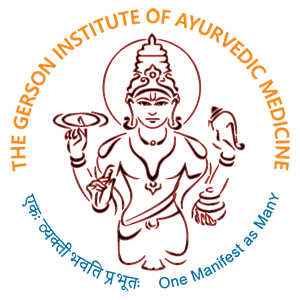Note on Lack of Credentials to Administer Panchakarma
If one performs a Google search for “Panchakarma” approximately 600,000 websites will result. Some of them appear very inviting and professional. Some of them have inspiring testimonials, use Sanskrit terminology, and claim extensive experience and training.
However, claims of training is no substitute for actual proof of training in one of India’s legitimate 204 Ayurvedic colleges. If one examines almost every one of the “panchakarma websites” they all have one thing in common: they all cleverly circumvent the fact that no one there (from the purported “medical” director to the therapists to the assistants) has any true formal training in panchakarma therapeutics. Some people fake their credentials because they lack the intelligence, skills, or passion to earn their education legitimately. Others have unquestionable intelligence and heart, and simply lack the discipline, resources or social adjustment to make it through the traditional Ayurvedic educational system.
Sadly, this is as true for the burgeoning number of actual licensed U.S. M.D.’s who are incorporating “panchakarma” into their practices as it is for the non-M.D. “practitioners”. The minimum requirement for learning panchakarma chikitsa (treatments) is attendance and graduation from one of the Indian degree-granting Ayurvedic Colleges. The curriculum in all such colleges includes training and experience in prescribing and administering panchakarma therapies. In addition, a very few Ayurvedic physicians then go on to sub-specialize in Panchakarma (just as an American doctor could sub-specialize in cardiology or gynecology). In every case of such training, diplomas are granted and, by tradition, are always displayed in the office of the Ayurvedic physician. Dr. Gerson has specialized in panchakarma and is currently one of only three vaidyas to have earned a Ph.D. in this discipline.
Panchakarma is a medical procedure prescribed after a thorough medical examination and evaluation by a fully trained and credentialed Ayurvedic physician. It is not a glorified spa therapy. Like any medical procedure it has established indications and contraindications, as well as possible adverse effects, and is performed under close medical supervision by trained and experienced panchakarma therapists.
There is no regulation of Ayurveda--in general--or of panchakarma--specifically--anywhere in the U.S. at this time. There is no such thing as an Ayurvedic practitioner. You may also see naturopathic doctors, medical doctors and osteopaths, or (depending on the state laws) chiropractors or acupuncturists, who claim to practice Ayurveda.
However, these credentials do not necessarily provide assurance to the patient that the provider is competent in the ancient and complex discipline of Ayurvedic Medicine, leaving considerable responsibility on the patient’s shoulders to exercise due diligence in selecting a provider. The singularly best thing to do is to ask to see the provider’s diploma issued from an Ayurvedic college. Although there are no guarantees that it will not be falsified, at least look for a raised seal and registration number. Ask lots of questions about education and clinical training in panchakarma specifically and observe the responses carefully. Other impressive health-care credentials, membership in reputable professional organizations, a period of apprenticeship under an Ayurvedic doctor, recommendations from friends and family, or especially information on the Internet have little value. Be as diligent on your own behalf as you would be if you were researching the practitioner for a beloved friend or family member.
Education and “Credentialing” of U.S. Ayurvedic Medicine “practitioners”
The United States has no Ayurvedic colleges or universities or any other institution which provides the full 5 ½ years of education. There is varying levels of training available in a few private clinics, small private schools and institutes, and through distance learning and clinical mentoring. Some of it is available to anyone who can pay the tuition, and some only to those who already have a health care license. Generally, these programs will result in a certificate or actual diploma showing completion of the hours and the field of study. However, there is no Ayurvedic program in the U.S. that is even minimally comparable to the in-depth, detailed and transformative training received in an Ayurvedic college or university in India. To disguise their insufficiencies and buttress their profiles, some U.S. programs have established (financial) ties with India-based colleges and may offer the option of some short period of training there.
There is no official system by which to evaluate either training in India or training here in the U.S. In India, one can theoretically call the registrar of any Ayurvedic college and verify that someone attended and graduated. Cooperation in verifications like this is up to the discretion of the individual registrar. There are no recognized Ayurvedic credentials here in the U.S. (such as a national board examination, a license or certification), and no real national organization upon which to rely for guidance. The American Ayurvedic organizations which do exist are all self-serving and were created partially in an effort to lend recognition to many of its members (and founders’) inferior credentials and justify not matriculating from an Indian college. All this lack of regulation has opened the door to opportunists who have perfected ways to convince you that their Ayurvedic treatment and panchakarma therapies are authentic. These opportunists often target people who are dissatisfied with conventional medicine or who have medical conditions for which there is no conventional cure.
In closing, when searching for a panchakarma facility there is no substitute for proof of the physician’s credentials. If these credentials exist, the physician would surely happily display them prominently in his or her office as our tradition dictates.



